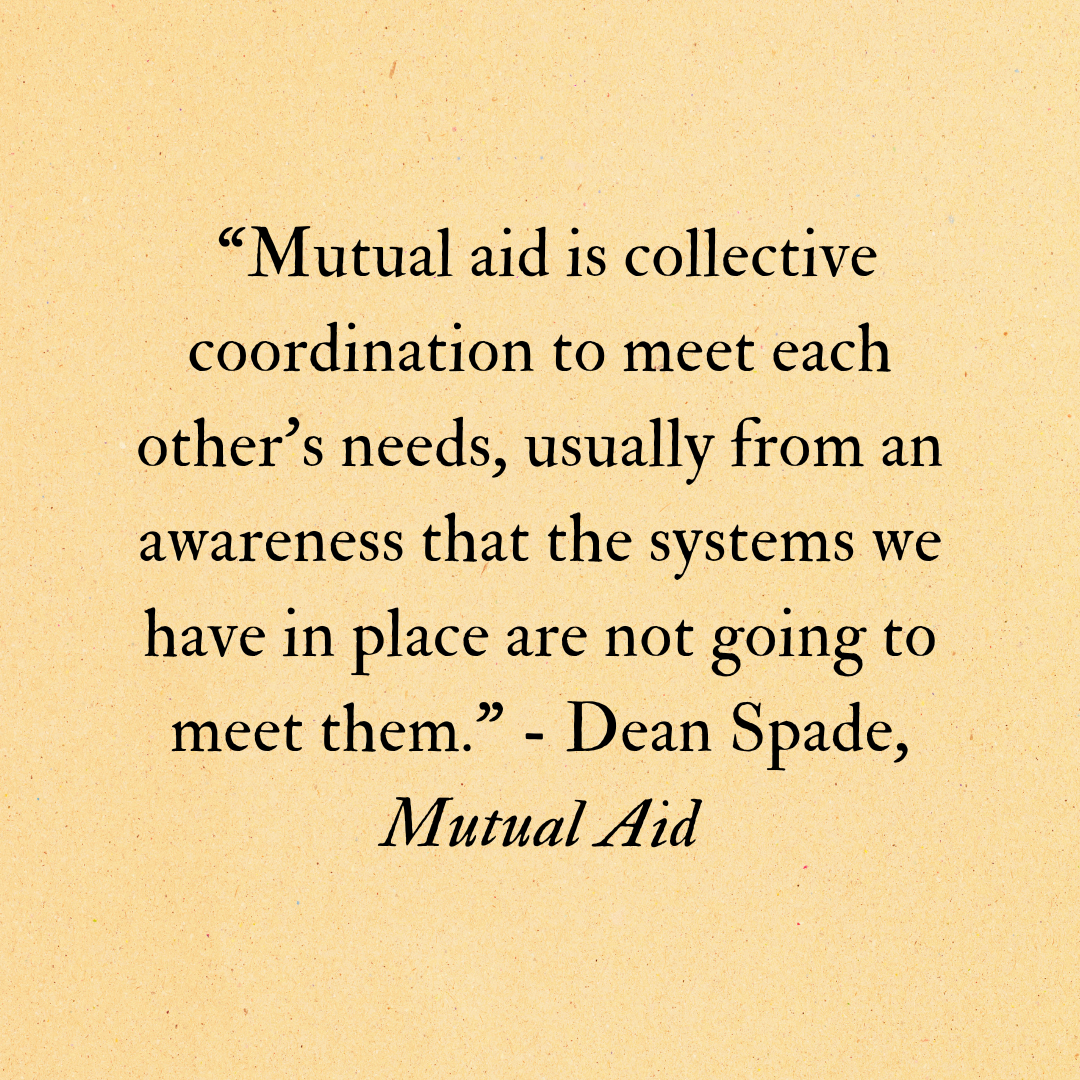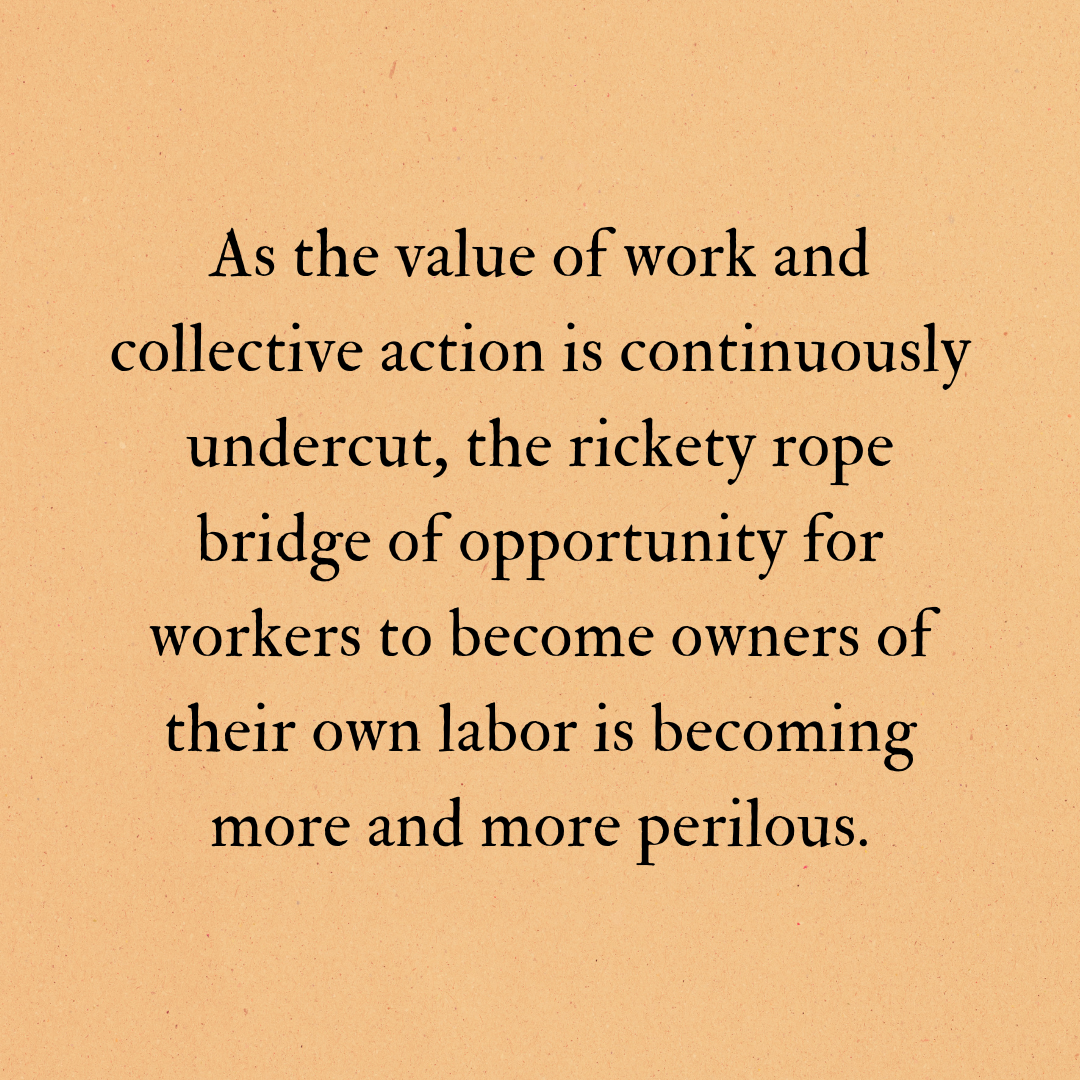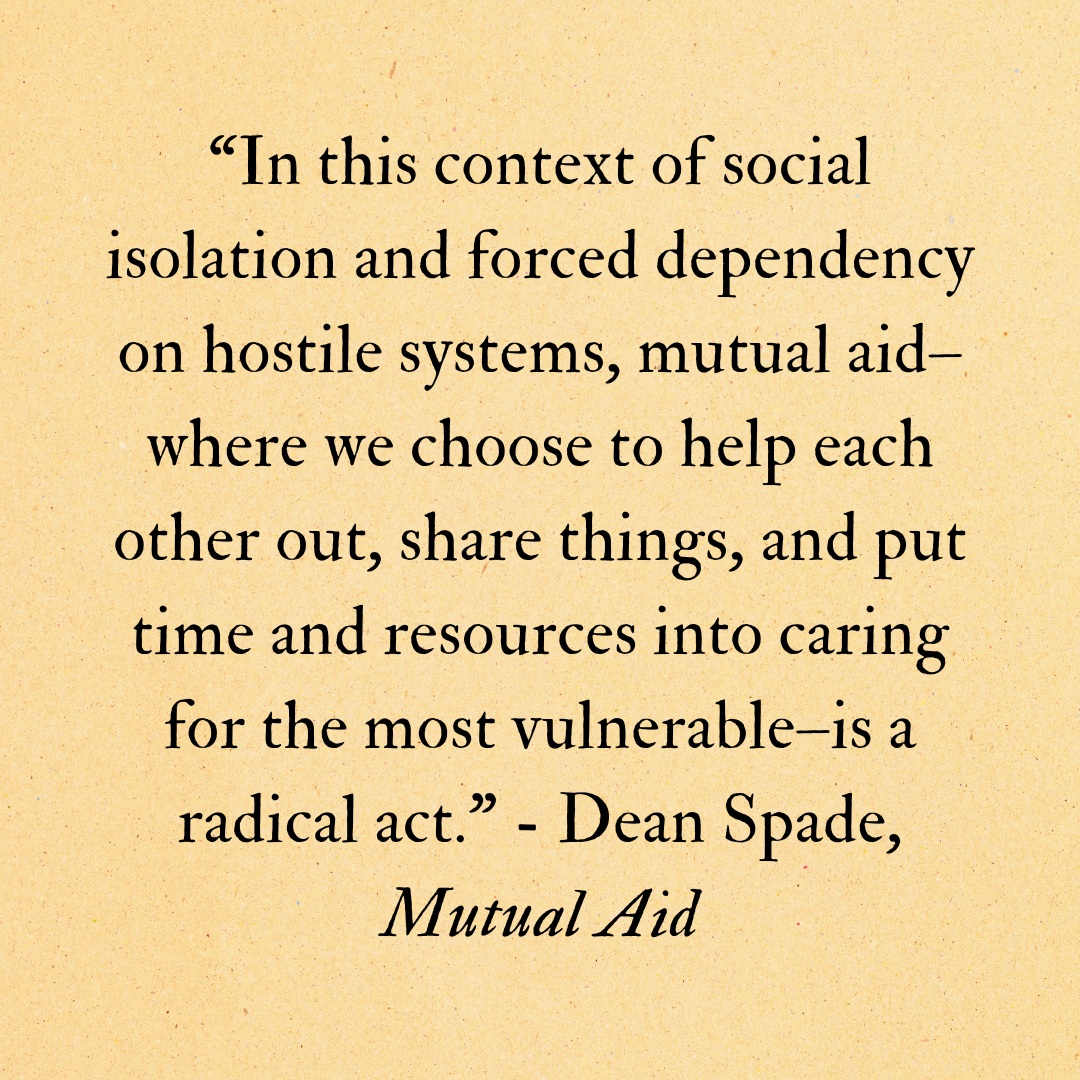|
As mentioned in a previous post, I’ve recently been making my way through Mutual Aid by Dean Spade. The book focuses on discussing the ways that people can help each other mutually without having to abide by rules and regulations maintained through traditional not-for-profit or for profit business models. I thought I’d start a series discussing the book, almost like a book club of sorts, but focus specifically on how the ideas of the book can be applied to the music industry. If you’d like to follow along, you can pick up a copy through the affiliate link I’ll put towards the end of this post.
The first chunk of the book discusses what exactly mutual aid is. Spade describes it as the following, “mutual aid is collective coordination to meet each other’s needs, usually from an awareness that the systems we have in place are not going to meet them.” Before being introduced to this book, I had never heard of mutual aid. I figured the extent of social programs ended with not-for-profits. However the thing that sets mutual aid apart from these well known models is the underlying understanding that the current social and economic circumstances we live in, are flawed. Recognizing this, and addressing it, is what I believe can lead us to a better place for all.
Before I discuss exactly how I think mutual aid can benefit musicians, in this first blog, I think it’s important to point out the applicable systemic issues we’re facing. As is the case in other industries, workers are necessarily paid only a fraction of the value they contribute. This is inherent in a system which prioritizes ownership of lucrative property rather than the individual value of labor. From Spotify to Record Labels to Jingle Writing, we see owners profiting greatly off of labor they do not do themselves. The saddest part of this is that the only way to engage in this kind of ownership is to acquire the wealth to purchase it in the first place. To make matters worse, these big owners often position themselves as the only avenue to get a shot at it, and even then, it’s no guarantee.
As the value of work and collective action is continuously undercut, the rickety rope bridge of opportunity for workers to become owners of their own labor is becoming more and more perilous. This is exceptionally troublesome in an industry like music, which often requires substantial investment of time and money in order to achieve success. This is a kind of flexibility that essentially gates off the arts to many with the financial circumstances who need to start as laborers first. Rather than an open environment of collaboration, which is the best place to foster artistry, we have been forced to compete with each other for the chance to cross that bridge. This is not the way across.
Despite these systems being well practiced and seemingly immovable, I think there is hope in changing them. However, it all starts with the recognition that they are flawed in the first place. After that, all it takes is enough of us to start moving in a new direction, and I think we can, we’re a creative bunch, afterall.
Whenever we end up returning to this series, I’ll get more into applying mutual aid itself to music, finding solutions, and discussing ways we can help each other through the current climate. In the meantime, I highly recommend picking up the book and diving in yourself! You can pick it up through my affiliate link below: Thank you for reading, and happy jamming!
0 Comments
Leave a Reply. |
AuthorSean Penzo is a composer, cellist, and writer currently based in Pittsburgh, PA Archives
July 2024
CategoriesHeader photo by Peter Kleinau on Unsplash
|



 RSS Feed
RSS Feed